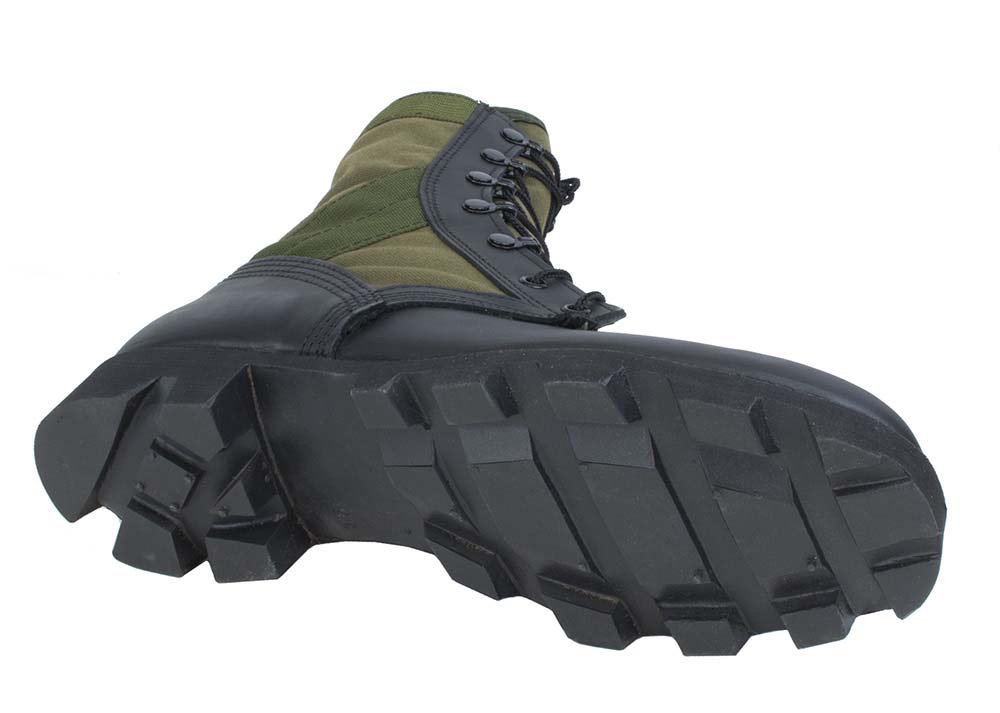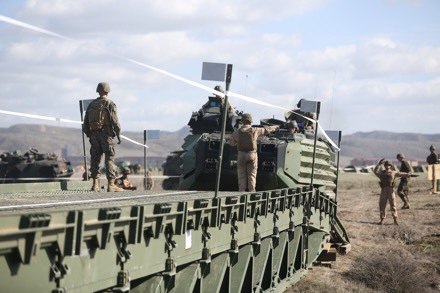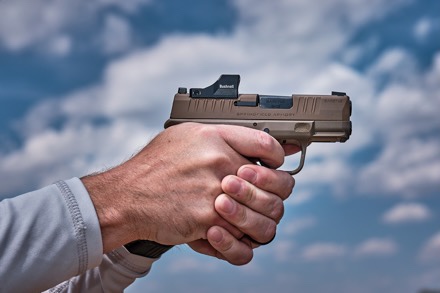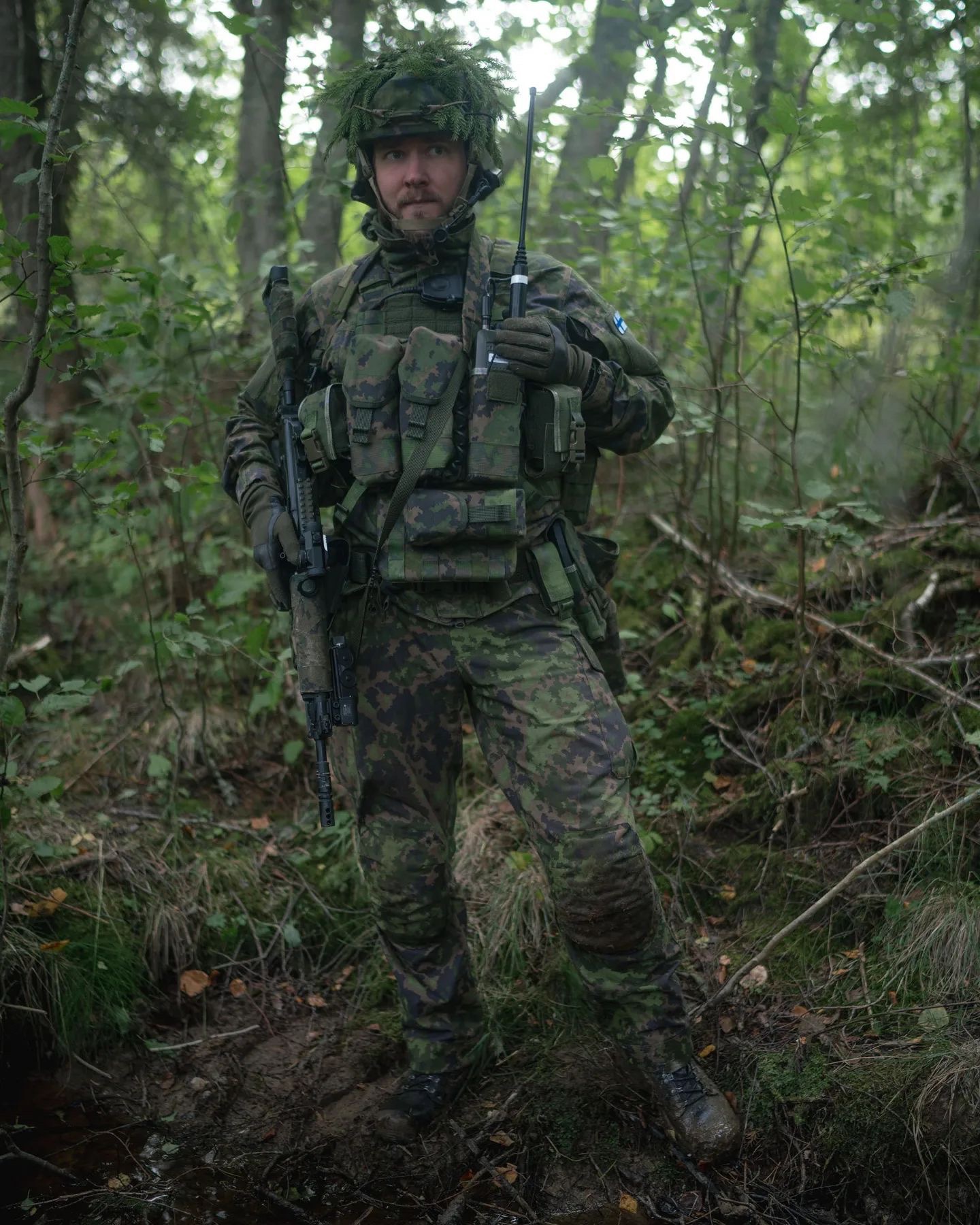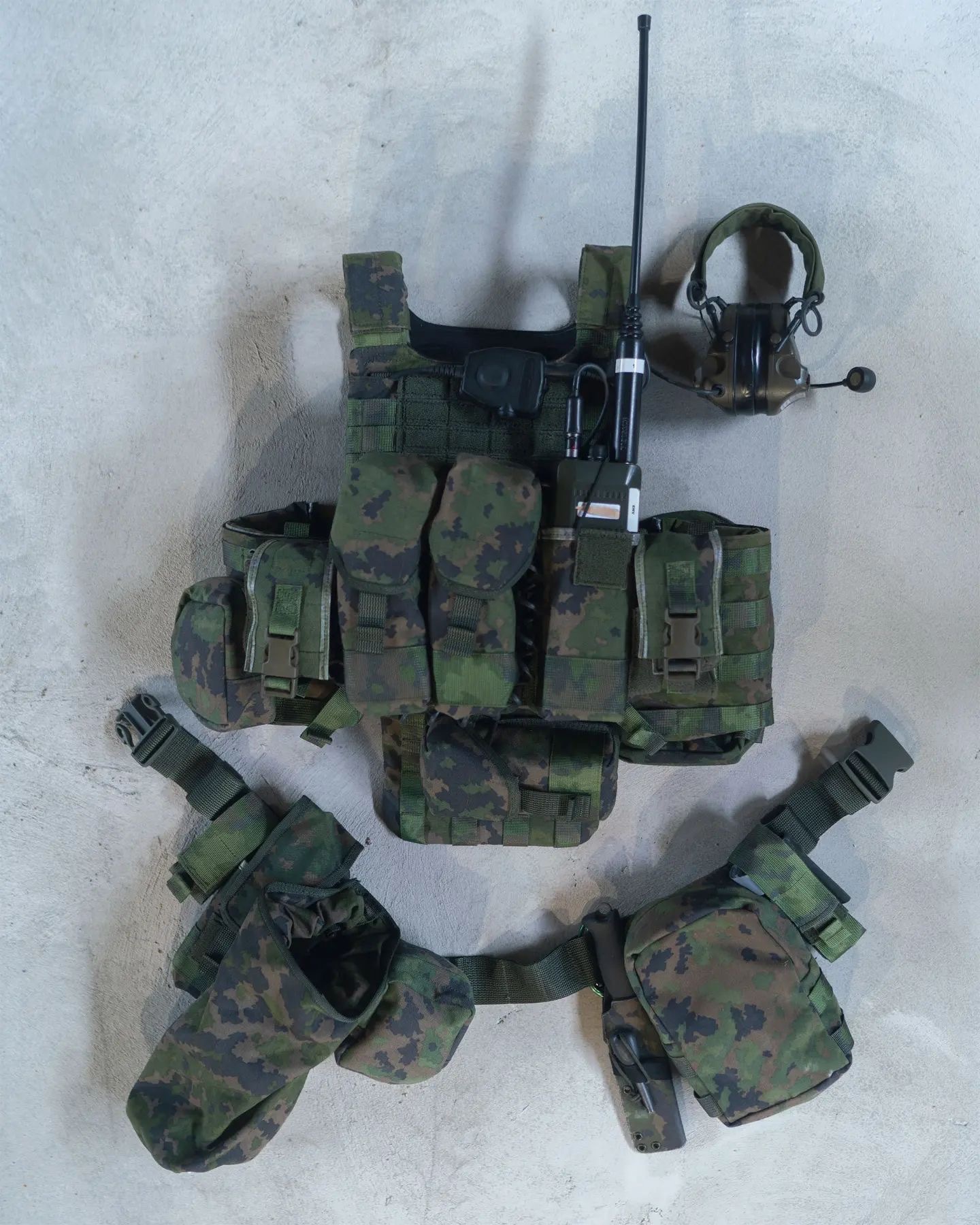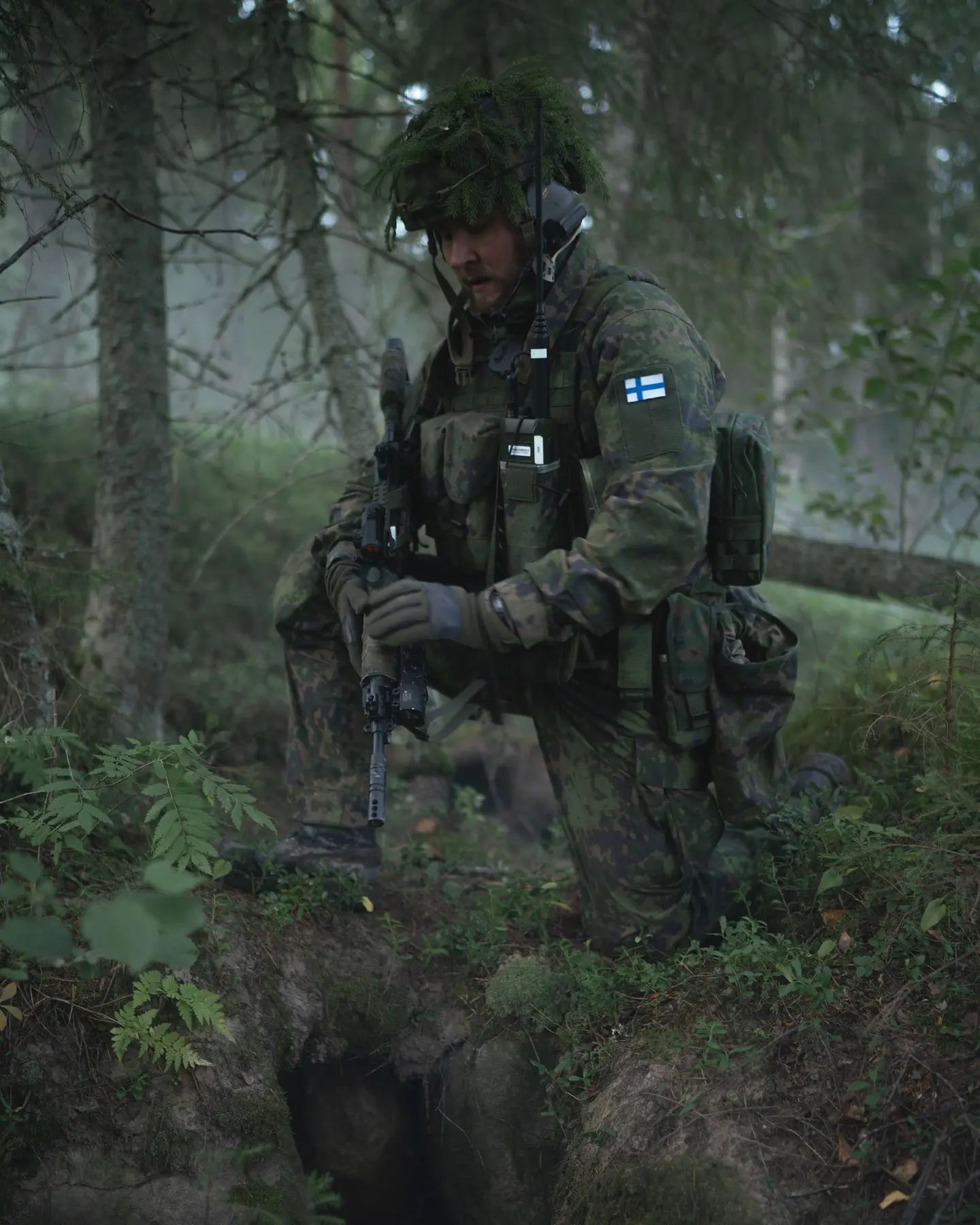OKINAWA, Japan —
High-risk emergencies can happen anytime and require the attention of a specific group known as the Special Reaction Team, or commonly referred to as SRT.
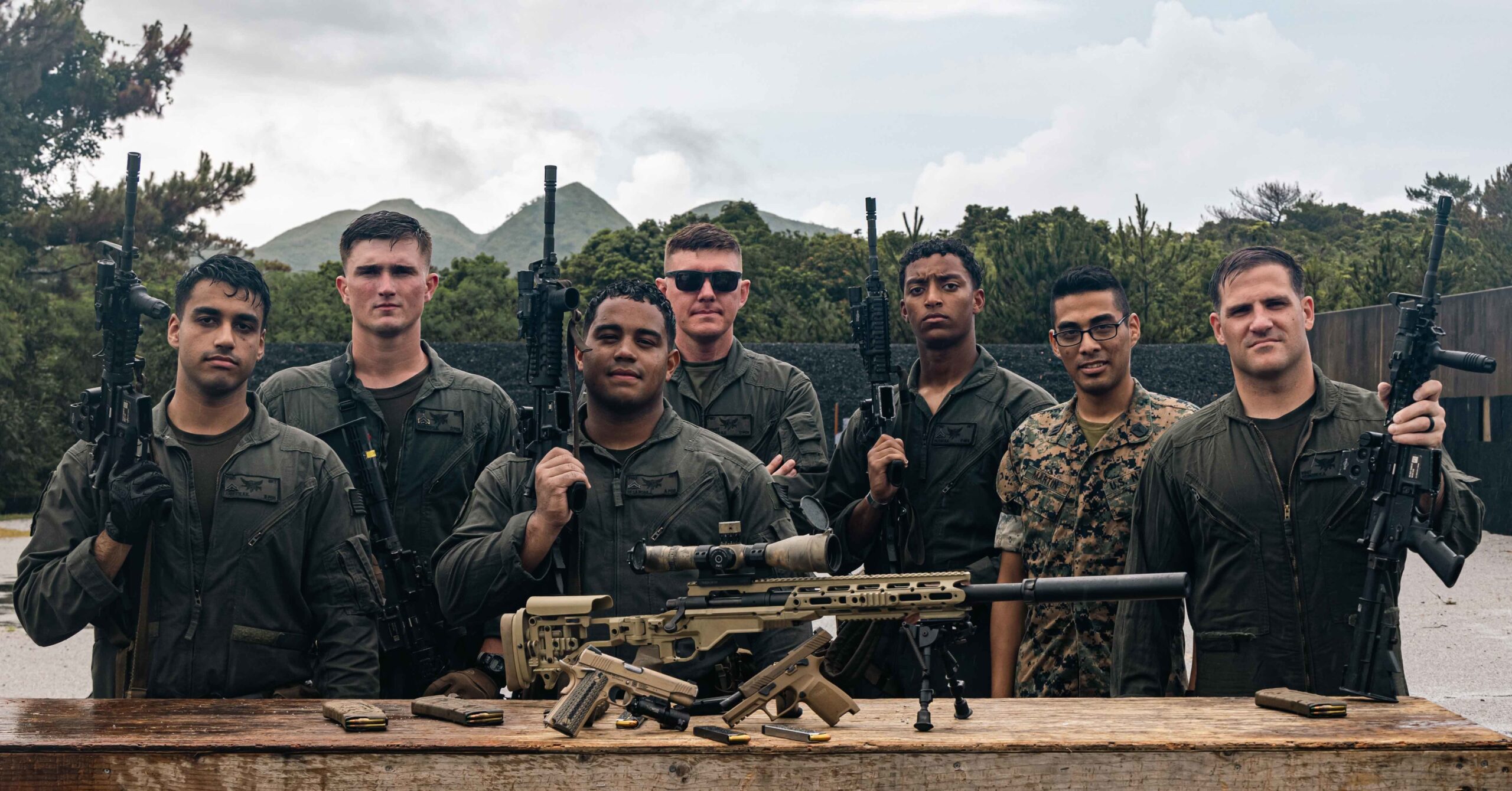
The members of SRT are attached to the Provost Marshal’s Office and are always on standby to respond to situations such as an active shooter, hostage situations, and barricaded subjects.
“Today, we shot from a tower structure to simulate engaging a hostile target from a sniper position. Afterward, we moved to a short range to practice static fire, multiple hostel engagements, and team movement drills,” said Gunnery Sgt. Russell Harned, team commander with SRT, Headquarters and Support Battalion, Marine Corps Installations Pacific. “We conducted a familiarization course of fire with an M40A6 rifle, Colt M45A1 Close Quarter Battle Pistol, P320-M18 pistol, and M4A1 Carbines.”
To remain proficient, SRT practices marksmanship weekly by conducting range firing and team tactics. As they continue to train, the team members have adapted to work not only with a dynamic approach but also with a psychological one.
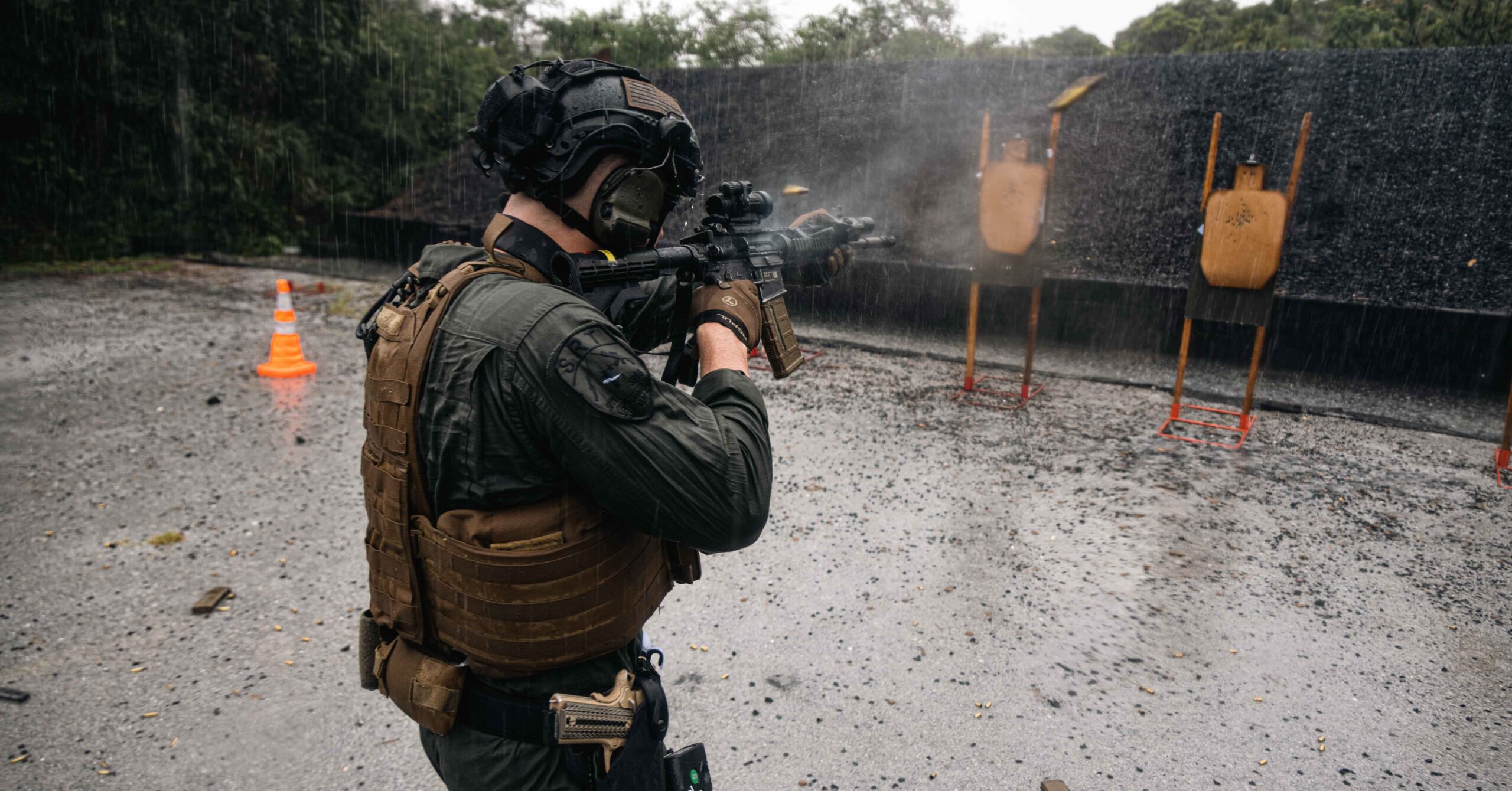
“The way we execute the mission at hand has drastically changed,” said Harned, “We still enter structures in a dynamic style, referring to kicking down doors, but we now take into account a psychological approach, to understand what the individual inside is thinking and what we can do to help them.”
SRT works on an emergency basis. When a threat is deemed too high risk for a patrolman, SRT receives a call to neutralize the subject. Their main goal is to contain, control, and dominate a threat psychologically or physically.
“My job is to protect and save lives,” said Cpl. Dylan Diamond, a team leader with SRT, H&S Battalion, MCIPAC. “Our job as a team is to protect all service members, Status of Forces Agreement Personnel, and local nationals on base. When we arrive at a site, we resolve the situation promptly, with minimal property damage.”
Diamond explained that he sees SRT continuing to move positively by adapting to the new situations and developing new tactics to protect bases across Okinawa further. Diamond explained that they will continue to grow and work as a team, furthering their goal to contain, control, and dominate a threat psychologically or physically.
By LCpl Jonathan Beauchamp, Marine Corps Installations Pacific



